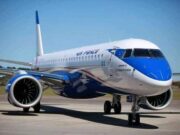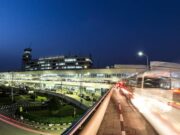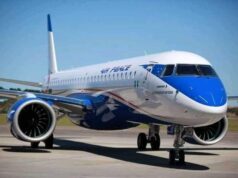
Despite the inherent challenges of global cargo movement, the air cargo business in Nigeria remains resilient, according to Dr. Lucky Omokhodion, a prominent frontline cargo agent.
Speaking on the sidelines of the inauguration of the new executive council of the Domestic Airport Cargo Agents (DACAA) in Lagos, Dr. Omokhodion, who chairs Ehi Multi Systems Nigeria Limited, identified the critical shortage of dedicated cargo aircraft and inadequate airport facilities as major impediments facing operators.
He highlighted that the absence of sufficient cargo planes forces agents to rely heavily on passenger aircraft for transporting goods across the nation, leading to significant inefficiencies and increased operational costs.
“We do not have cargo flights; we only have passenger flights, and it is through these that we take all cargo across the nation,” he stated.
He further emphasized that the current reliance on passenger planes presents an unsustainable business model that stifles the growth potential of the air cargo sector.
Recent operational disruptions experienced by domestic carriers, such as the temporary grounding of Dana Air and issues with Arik Air, have further exacerbated the situation, bringing the air cargo business to a near standstill at times.
In addition to the lack of aircraft, Dr. Omokhodion pointed to the inadequacy of facilities at domestic airports as another significant challenge contributing to the hardship faced by cargo agents.
However, he expressed optimism that ongoing collaborations between cargo agents and airport authorities would lead to the construction of suitable warehouses to streamline cargo movement.
Addressing the newly inaugurated DACAA executive, Dr. Omokhodion urged them to foster unity and inclusivity within the association, expressing his hope that their leadership would elevate the organization to greater heights.
Dr. Omokhodion also shed light on the high capital investment required for acquiring and operating dedicated cargo aircraft, which acts as a major deterrent for potential investors.
He explained the economic realities, stating, “For a cargo aircraft to fly from Lagos to Abuja, for instance, it needs to be fully loaded with goods for both legs of the trip. If it flies back empty or half-empty, the investor incurs significant losses.”
The CEO warned that the scarcity of cargo planes has already resulted in financial losses for air cargo operators, with some clients opting for alternative transportation methods.
The situation has also led to the spoilage of perishable goods, including fresh fruits and vegetables, due to flight cancellations and delays.
Despite the significant upfront costs, Dr. Omokhodion called upon investors to consider the long-term benefits of investing in cargo aircraft, emphasizing the necessity of finding sustainable and profitable models for such ventures.
The prevailing shortage of dedicated cargo aircraft poses severe implications for the Nigerian air cargo industry, leading to delays, financial losses for operators and customers, and overall frustration.
Industry stakeholders and the Nigerian government are urged to collaboratively address this critical issue and explore viable solutions to overcome the lack of dedicated cargo aircraft and improve infrastructure at domestic airports.


























